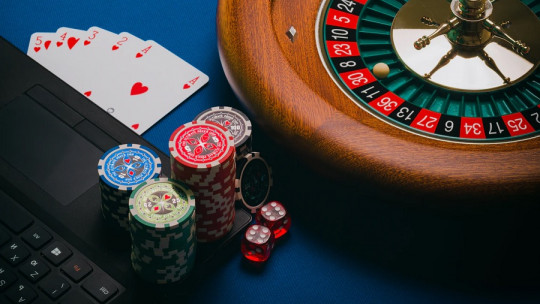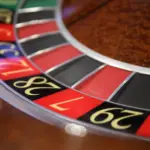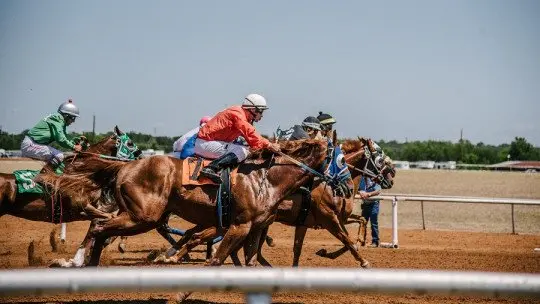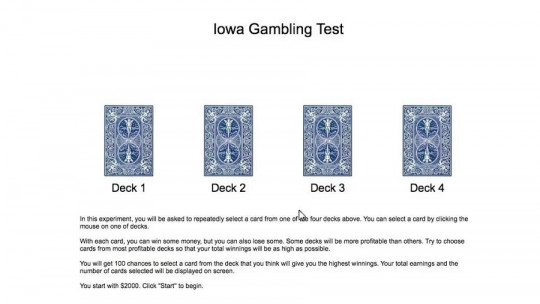Gambling is extremely common in modern society since they have been accompanying humans for centuries and are ubiquitous in almost all societies and cultures.
In a game of chance, the participant risks a certain amount of money or material goods with the belief that “something” (we define something as a game, sport, race, etc.) will have a predictable result. The winning person multiplies the amount bet and obtains profits, to the detriment of all the rest of the participants who have lost.
In the United States, it is estimated that 78% of the population has at least participated in a game of chance. This figure is not at all surprising when we look at economic figures, since organizations in this country estimate an annual expenditure of about 300 million dollars solely on online betting. In the poker houses of this region, 1.9 billion dollars are invested annually, while the lotteries intercept about 80,000 million in the same time interval.
All these data show us a more than clear reality: gambling is the order of the day and, with it, the increase in the incidence of gambling addiction. Next, We explain everything you need to know about the relationship between gambling addiction and suicide.
What is gambling addiction?
A gambling addict is someone who is forced, by a completely uncontrollable psychological urge, to gamble and risk their assets in an unhealthy and progressive way. Today, The official document on psychological disorders “Diagnostic and Statistical Manual of Mental Disorders” (DSM-5) classifies problem gambling as an addiction, similar to what happens with chemical substances that generate dependence.
For a person to be considered a gambling addict, they must present 4 or more of the following criteria for a period of 12 months or more:
As we have seen, a person must meet at least 4 of these requirements to be considered a potential psychological patient with gambling disorder. In the United States, the prevalence of this disorder ranges from 0.1 to 6% of the total population. , depending on the studies and nuclei consulted. This translates, approximately, into almost 6 million people who need psychological treatment for their gambling problems.
Gambling addiction and suicide: two sides of the same coin
There are multiple studies that have linked problem gambling with suicide, but one stands out in particular: Problem gambling and suicidality in England: secondary analysis of a representative cross-sectional surveywhich was published in the medical journal Public Health in 2020, very recently.
In this research, a random sample group of 7,403 adults residing in England was collected, and an attempt was made to correlate problem gambling with a greater probability of presenting suicidal thoughts. To the surprise of few, Gambling patients had almost 20% suicidal tendencies, compared to 4% of the total population. Specifically, people who had a gambling problem were 5.3 times more likely to consider suicide.
Let’s go further, then 4.7% of gambling patients had not only thought about suicide, but attempted it. There is much more data that allows us to quantify the clear link between the game and this event, since in some hospitals (in this case the Alfred Hospital’s emergency department, Australia) up to 17% of people admitted after a suicide attempt in 2010 They were gamblers.
What is this correlation due to?
Gambling addiction, like any other chronic addiction, seriously affects the patient physically and emotionally. For example, various medical sources estimate that people with gambling problems are twice as likely to suffer from depression, and are up to 18 times more likely to suffer emotional distress derived from their difficult situation.
In addition to these data, it should be noted that this correlation is not unidirectional. A person can develop depression resulting from the effects of gambling (financial loss, lack of work, social isolation, etc.), but It is also possible that a depressed person tries to find excitement in gambling. The causality of both events depends on each person and case.
For example, a person with a lack of goals and/or depression may resort to gaming to escape their negative emotions or, failing that, to feel that they are part of a specific dynamic and group. Playing can become a routine.
It is not difficult to imagine why suicidal tendencies accumulate in a gambling person: Lack of money implies inability to achieve goals, uncertainty, chronic anxiety and stress, and feelings of abandonment.
Thus, the high rates of suicidal ideation and suicide attempts secondary to gambling are well established among those who suffer from gambling disorders. However, major depression (current or past) is a clear predictor of suicide risk among pathological gamblers. In this sense, comorbid depression in pathological gamblers would further increase the risk of suicide (Guillou-Landreat et al., 2016).
To do?
As you may have seen, it is clear that gambling addiction is linked to suicide. Among the many potential adverse consequences of gambling, the most serious is suicidal behavior, as 20% of pathological gamblers will attempt suicide during their lifetime (Moghaddam et al., 2015).
There are risk factors that increase the relationship between pathological gambling and suicide. Firstly, there is the financial stress that has been associated with player suicide, either directly or indirectly, due to the relationship between financial problems and increased family conflict, which in turn is associated with increased suicidality (Bucha nan et al., 2020; Carr et al., 2018). It is clear that suicidal thoughts in addicts are common and more than documented.
If you have seen yourself reflected in any of the points mentioned when diagnosing a gambling patient, it is important that you seek professional help and not let time pass. The G.SINadictions Psychology Clinic , specialized in gambling addiction, is directed by psychologist Sara Meca, with experience in addictive disorders. The sooner you intervene in the problem, the less it will cost to overcome it. These types of problems can be treated pharmacologically and/or psychologically, so seeking treatment is the wisest decision that every sick person can make.









